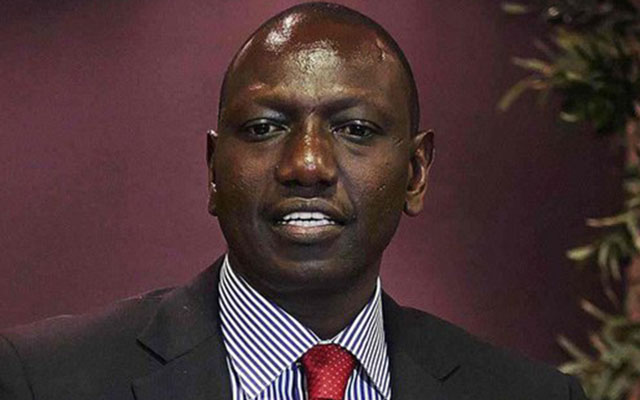What is the truth about Black Friday?

Dr Masimba Mavaza Correspondent
Black Friday Origins: Selling Of Slaves After Thanksgiving?
Photos of slaves being sold in the United States are circulating on WhatsApp, Facebook and Twitter as evidence that the term “Black Friday” originated with the practice of selling slaves after the Thanksgiving holiday.
Now, do we really need to embrace this kind of torture? Or we are such gullible, that we don’t even know what is this so-called Black Friday and we become so excited about it?
In most of the world, the last Friday of November is called Black Friday. It is a day that, for most British shoppers, only started in the last couple of years and is symbolised by fights at the shops entrances, long queues of shoppers who sleep by the doors to get the first slot inside the shop.
Most products in shops are sold at half price and this no doubt kick starts the festive season shopping. Black Friday was introduced to the UK by Amazon an online shop, and now a range of retailers such as Tesco, Argos and John Lewis discount prices.
But the real Black Friday term first began in the US, where Black Friday follows Thanksgiving on the last Thursday of November.
Many people have come up with their own origins of the Black Friday. Normally the word black is simply identified with bad things. In Swaziland in 1990 I survived a Black Wednesday —when university students were beaten up by the police and the army. Mercilessly beaten up. So the term black has been demonised enough.
The most common rumour which remains a rumour was that Black slaves were sold at a discount on a Black Friday.
Toni Braxton posted the pictures of slaves being sold on a Black Friday on her Facebook page, along with the accompanying caption which claims that “slave traders would sell slaves for a discount to assist plantation owners” when they needed extra help to prepare for winter.
However research has shown that the first documented use of the phrase comes a long time after the slave trade was abolished in the US and so it makes it unlikely that the term originated then. This could not be the day slaves were sold. However, there is no evidence to support this and the rumour has since been debunked in full.
It hasn’t stopped people, especially in the US, to call for a boycott of Black Friday. Up to this day many people are angry with Black Friday. They see it as a day which celebrates the slave trade. History has refused to support this theory even though most of our Black brothers frown at this concept of Black Friday. Why is anything bad called black. It is a fact that retailers go “into the black” on Black Friday this has nothing to do with slave trade.
Both in the UK and the US, retailers rely on the Christmas season to make much of their yearly profits — and there are plenty of queues on the high street and waits to access online stores.
In 2012, shoppers in the US spent an estimated $59.1bn on Black Friday, according to the National Retail Federation.
But because of the deep discounts offered, it isn’t clear how much of that is profit and there is no evidence to suggest this is the day where they go “into the black”.
Most retailers in the UK have managed to make the sales to keep in business in all the years preceding the introduction of Black Friday. May be employers are the ones who should call this day black. This is because on Black Friday everyone calls in sick to go shopping.
There may be some truth in this, in that there has been shown to be an increase in sickness absences on the day after Thanksgiving in America
Americans have another theory of how the Black Friday came up. The New York Times report from 1975, says Black Friday is slang in Philadelphia.
In a previous article from 1961, references are made to police officers in Philadelphia coining the term as a way to describe the smog and traffic caused by shoppers.
Retailers were said to be unhappy with the phrase and tried to rename it Big Friday. This didn’t catch on. It remained Black Friday. Could this be true? The first appearance of Black Friday again is pushed back to 1869. The origin of the term “Black Friday” goes all the way back to Friday September 24, 1869. But rather than having anything to do with retail, it was first used in association with the Wall Street financial markets.
Two traders, Jim Fisk and Jay Gould, purchased a large amount of gold with the intention of pushing up the price, which they would then sell to make a huge profit.
As a result of Fisk and Gould’s unethical scheme, the US gold market crashed, with countless Wall Street financiers left close to, or completely, out of money.
It was a fairly underhand plan and once put into action it had a devastating effect on other traders — the term “Black Friday” summing up the general feeling of doom and gloom.
One thing which kept coming back is Black Friday in retail.
Another root of the term is believed to have come from retailers in the US and the way they used to record profits and loss in their business: when accounting, profits would be in black and losses in red. It is believed that for most of the year, many businesses would operate in the red, only going into the black the day after Thanksgiving when most people had taken advantage of the discounted deals on offer.
How did Black Friday become popular in the UK?
Being a large US company, Amazon were already used to Black Friday sales every Thanksgiving and first introduced the idea to the British public in 2010.
This was followed a few years later by Asda, who are owned by one of America’s largest retail outlets Walmart. It was around this time that Black Friday gained infamy, as customers were caught on camera shoving and pushing each other to get their hands on cheap digital gadgets.
They say there’s no such thing as bad publicity and that proved to be the case here, with Black Friday soon taken up by other prominent UK retail brands.
However, not all retailers take part in Black Friday, with the likes of Marks and Spencer in the UK opting out. In 2019, over 300 clothing brands — mostly in France — chose to boycott the day under the banner “Make Friday Green Again”, stating the overproduction of goods due to high sales was bad for the environment.
In 2019, UK retailers enjoyed huge sale figures, with customers spending an estimated £2.5 billion, which was an increase on 2018 numbers. According to Retail Week, in 2018, 194 million visits were made to website pages on Black Friday alone. Black Friday has spread in other parts of the world. The big sale day caught on quickly in the UK once it arrived, and it’s also the case elsewhere around the world, with countries like Germany, France, India and Brazil and many more, all taking part. Zimbabwe has caught on to the idea and maybe very soon it will overtake Harare and all cities.
Black Friday is also a big deal just across the US border in Canada, with millions of people taking the day off to travel into their neighbouring country to hunt for bargains.
The name is also changed in some parts of the world, with retailers in the United Arab Emirates labelling it “White Friday” and Mexico calling it “El Buen Fin” which means “the good end” in English.
As long as we are not sure where this came from go grab cheap products life is tough these days.









Comments